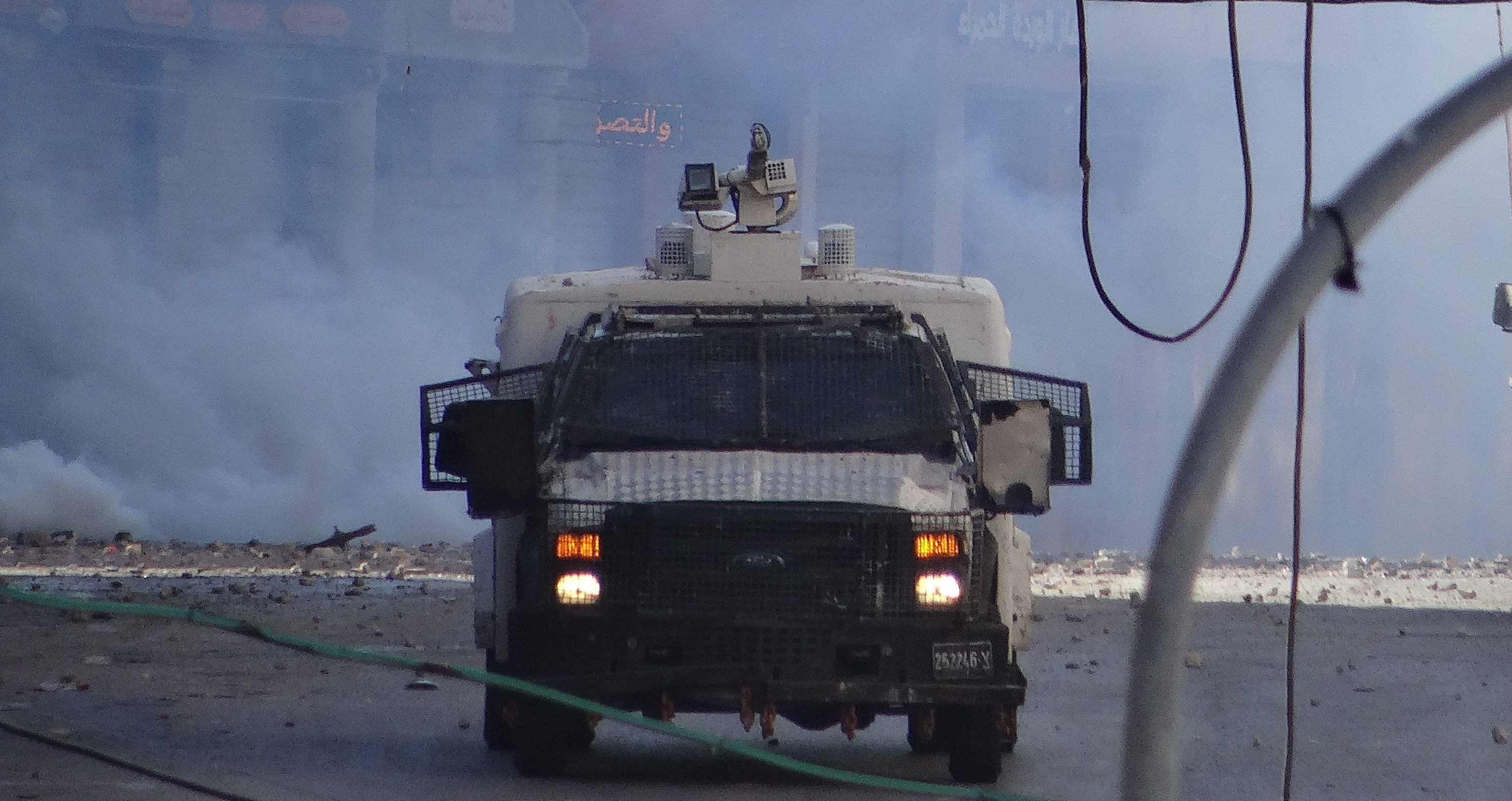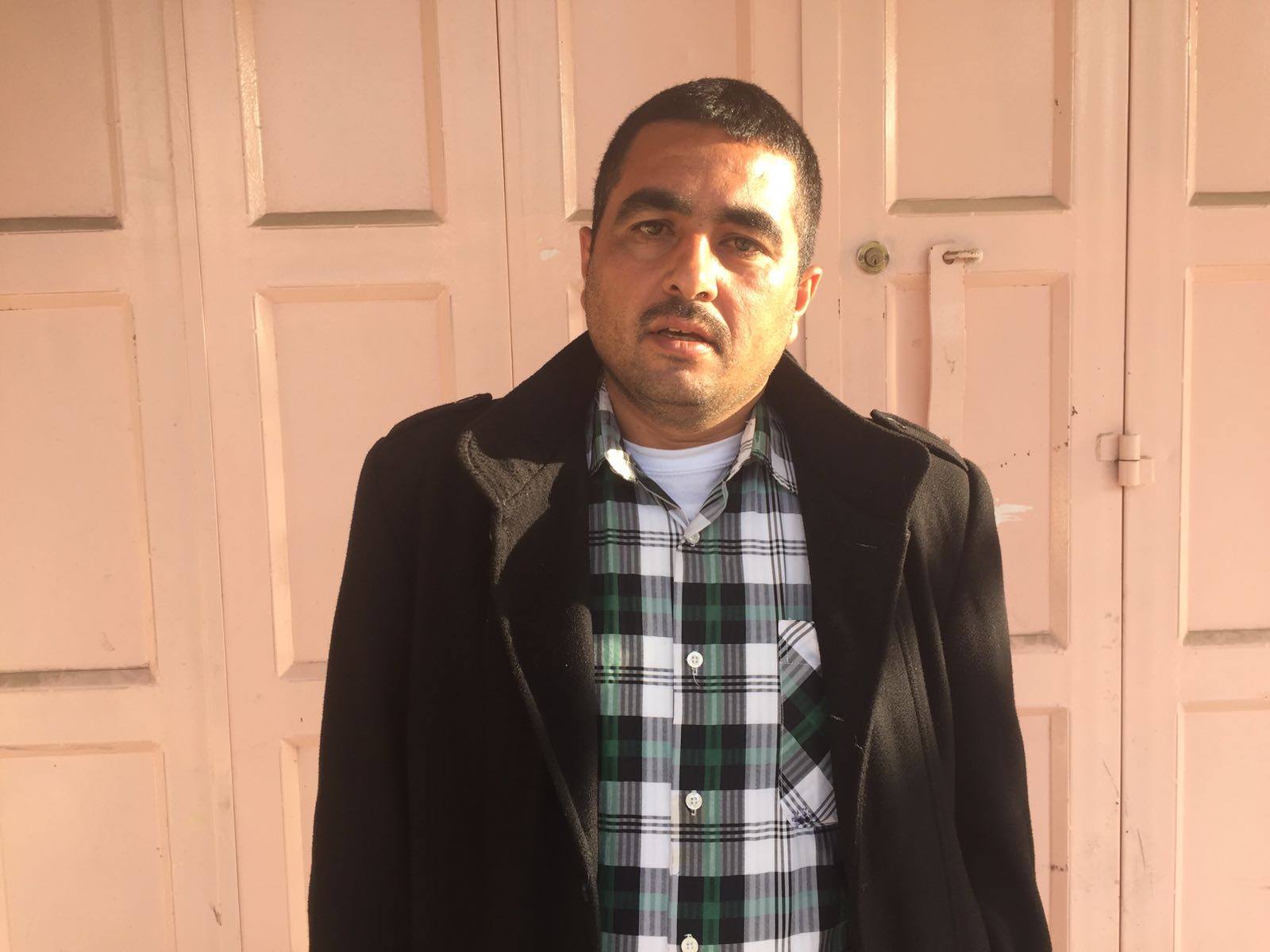Tag: Israeli forces
-

A call for solidarity from Kufr Aqab
24st November 2017 | International Solidarity Movement, Nablus team | Nablus, Occupied Palestine Six residential buildings in the Kufr Aqab neighbourhood in Jerusalem are currently facing demolition orders by Israeli authorities. The neighbourhood is the northernmost part of Jerusalem but is separated from the rest of Jerusalem by the Apartheid Wall. Most of the residents…
-

Two days of clashes in al-Khalil in connection with prisoners’ hunger strike
30th April 2017 | International Solidarity Movement, Khalil Team | al-Khalil (Hebron), occupied Palestine Heavy clashes broke out during two consecutive days as Israeli forces stormed the Bab Al-Zawiah neighborhood in al-Khalil, attacking young Palestinians protesting in solidarity with the ongoing prisoners’ hunger strike. It resulted in multiple persons being injured, caused by live ammunition…
-

Beatings, theft, and humiliation: Dismantle the Ghetto activist speaks of his ordeal following arrest at Land Day demonstrations
15th April 2017 | International Solidarity Movement, al-Khalil team | Hebron, occupied Palestine Last week, amidst a slew of arrests by Israeli forces and subsequent court hearings, ISM activists had the opportunity to meet with Badee Dwaik; one of the four men arrested during the Land Day demonstrations in occupied al-Khalil. Badee, a seasoned activist…
